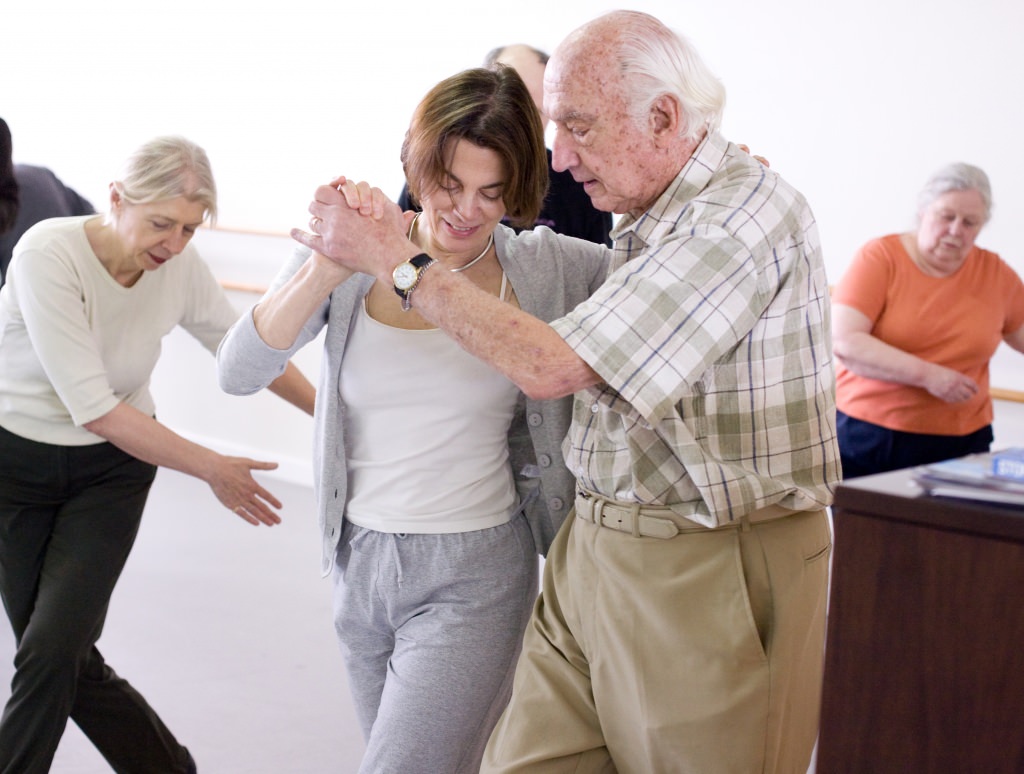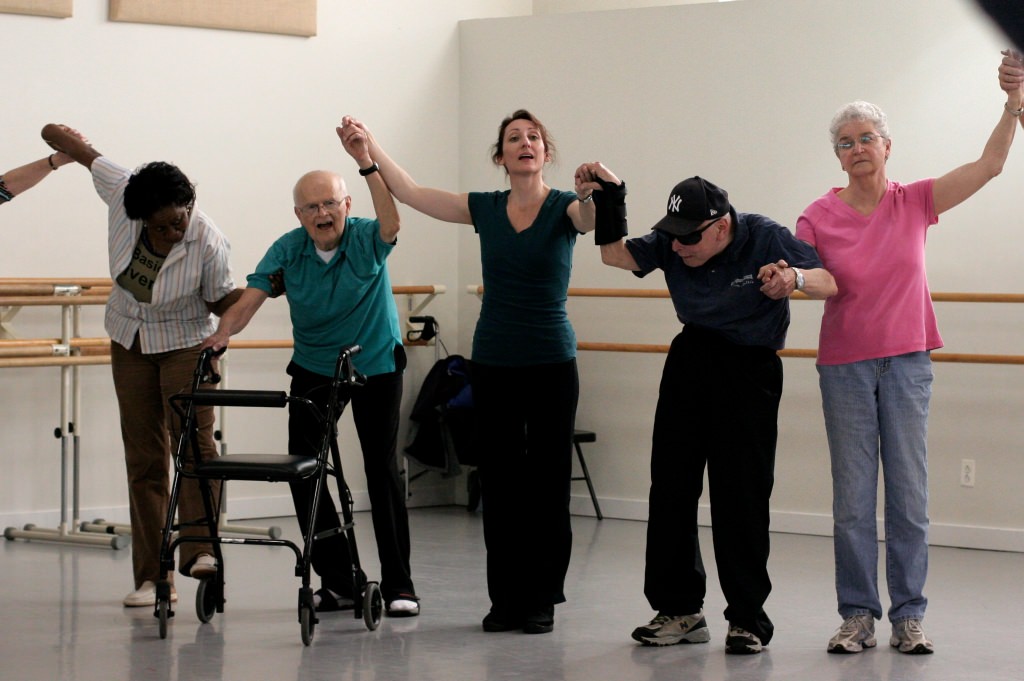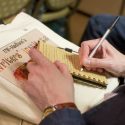Benefits of dance for older adults with Parkinson’s to be highlighted

Olie Westheimer, executive director of the Brooklyn Parkinson Group, partners with Sam at a Dance for PD class. Photo: Rosalie O'Connor /Dance for PD
Imagine a roomful of people with Parkinson’s disease, dancing. With the help of trained instructors, they move to the music. Swing their arms. Step in a circle.
Suddenly, something magical happens for people with a progressive movement disorder. A woman who normally can’t straighten her hand notices the stiffness going away. Some experience a burst of confidence; others, a sense of community.
The many benefits of dance for patients with Parkinson’s disease will be explored at the Summer Institute on Mental Disorders and the Older Adult, sponsored by the University of Wisconsin–Madison Division of Continuing Studies on July 28-29 at the Pyle Center. In a keynote speech and demonstration on July 29, David Leventhal, program director of Dance for PD, will offer new strategies for social workers, nurses, physical therapists, psychologists, physicians, and others who work with older adults.

Dance for PD classes are run by the Mark Morris Dance Group in New York City. Photo: Amber Star Merkens /Dance for PD
“There’s so much potential to enrich people’s lives and increase their well-being,” Leventhal says. “People are happy because they’re involved in a fun, joyful activity. They’re also learning specific strategies that help them manage their movement and their thinking process.”
Dance for PD is a collaboration of the Mark Morris Dance Group and the Brooklyn Parkinson Group in New York City. The program offers the classes around the world to improve people’s quality of life.
“I see transformation happen in front of my eyes,” Leventhal says. “People often come into the class with a lot of rigidity, and in that space they come alive.”
The Summer Institute on Mental Disorders and the Older Adult and the related certificate series are the only programs of their kind in the Midwest, providing the latest evidence-based information about geriatric mental illness. Day one of the Summer Institute offers an intensive look at late-life depression, anxiety, sleep disorders and executive function. Day two focuses on Parkinson’s disease and Lewy Body Dementia.
“Leventhal will show that there’s more to helping people (with Parkinson’s) than simply giving them a pill …”
Suzanna Waters Castillo
“Participants will sharpen their skills for working with older adults and find out what’s possible in terms of improving people’s quality of life,” says Suzanna Waters Castillo, director of aging and long-term care at the Division of Continuing Studies.
Along with Leventhal, the nationally prominent speakers include Lisa Boyle, director of the Geriatric Psychiatry Fellowship program at the UW–Madison School of Medicine and Public Health; Timothy Juergens, director of the William S. Middleton Memorial Veterans Hospital Comprehensive Sleep Program; and Art Walaszek, who oversees medical education in psychiatry at the UW–Madison School of Medicine and Public Health.
Leventhal will speak on the evolution of Dance for PD and demonstrate the dance movements he uses with Parkinson’s patients. Participants will have a chance to practice the movements themselves as a way of testing their effectiveness.
“Dance for PD is a poetic form of therapy that feeds not only patients’ bodies but also their hearts and souls,” says Waters Castillo. “Leventhal will show that there’s more to helping people than simply giving them a pill to increase dopamine production in their brains, which is currently the primary treatment for Parkinson’s disease. There are alternatives that allow people to have pleasure in their lives and a reason to live.”
Tags: arts, continuing studies, dance, Parkinson's disease



